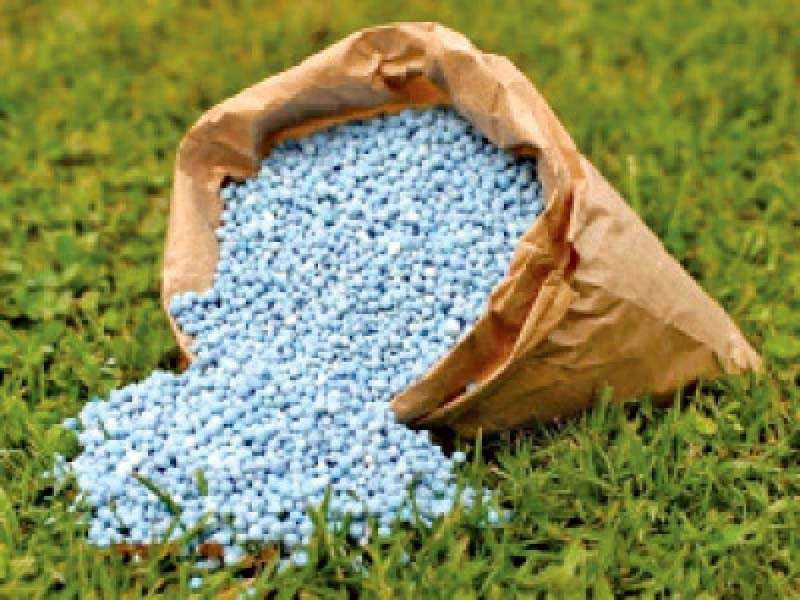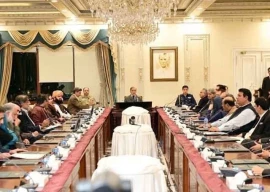
The proposed increase in sales tax on fertiliser in the budget for fiscal year 2022-23 will make the commodity further expensive for the small and medium-sized farmers.
“Farmers have slammed the increase in sales tax on fertiliser from 2% to 10% in the Finance Bill 2022,” Pakistan Businesses Forum (PBF) Vice President Ahmad Jawad told The Express Tribune.
“Fertiliser manufacturers will pass on the high cost to the farming community and from July 1 fertiliser may become more expensive, as it is already beyond the purchasing power of small and medium-sized farmers.”
The prime minister must strike down the proposed increase in sales tax as fertiliser was a main input for increasing the crop yields, he said, while pointing out that the PM wanted to see an increase in agricultural yields. Agriculture Republic Co-founder Aamer Hayat Bhandara said that the higher tax on fertiliser was not discussed with the farming community, which was contrary to the calls for rationalising input prices.
“It will be like a disaster in the upcoming year for not only crops but livestock and poultry as well,” he said. “We need to work on digitisation in the agriculture sector to facilitate the small and medium farmers, reduce cost, ease the cost pressure on crop production and promote efficient resource management to increase the productivity,” Bhandara emphasised.
All Pakistan Fruit and Vegetable Exporters Association Patron Waheed Ahmed argued that instead of making agricultural inputs cheaper, the government increased the sales tax on fertiliser, which “is a matter of grave concern”.
“A special relief package is required to reduce the production cost of the agriculture sector so that foreign exchange can be earned through the export of commodities while meeting domestic demand,” he stressed.
Ahmed urged all political parties to formulate a long-term agricultural policy by mobilising the resources of the federation and provinces to modernise the agriculture sector.
The agriculture sector should be developed on modern lines and through extensive research and development, quality seeds should be developed that could withstand the ill-effects of climate change, he stressed.
“It is a regressive decision,” remarked Mahmood Nawaz Shah, Senior Vice President of Sindh Abadgar Board, while taking to The Express Tribune.
“Small and medium farmers were already reeling from the expensive fertiliser and our crops were not getting enough nutrition, therefore the tax increase decision will exacerbate the situation,” Shah said.
Sindh Chamber of Agriculture President Miran Mohammed Shah was positive about the budget, saying basically it was not such a bad budget for the agriculture sector.
He said solar appliances and agricultural implements had been subsidised, adding the abolition of sales tax on tractors and other farm implements as well as on imported seeds were good measures.
PBF’s Jawad said that they had expected the government to announce some concrete package for the facilitation of horticulture industry to support the overall export target of $35 billion as the global horticulture trade had crossed $200 billion but no such announcement was made.
“There is also no relief package for the cool chain development, which is yet another grey area for Pakistan’s agriculture.” The PBF official expressed dismay that on the one hand the government was perturbed about the rising inflation, but on the other it fell short of addressing the root cause, ie the continued downward trend in farm productivity.
“Irrigation water is a very big issue nowadays and is increasingly denting production, but no strategy has been mentioned in the budget to handle this issue,” he said.
However, he welcomed the withdrawal of 17% sales tax on all kinds of seeds. Waheed Ahmed stressed the need for bringing the research conducted in agricultural universities in line with the world standards and also called for modernising the curriculum taught in such universities.
He said that the agricultural universities, federal and provincial agricultural research institutes, private sector and processing industry should be brought on one page so that an effective and long-term strategy could be developed at the national level to encounter the tough challenges facing the agriculture sector.
Published in The Express Tribune, June 12th, 2022.
Like Business on Facebook, follow @TribuneBiz on Twitter to stay informed and join in the conversation.



















1714478350-0/ojwilson-(4)1714478350-0-270x192.webp)














-(1)1714378140-0/AliAminMaryam-(4)-(1)1714378140-0-270x192.webp)

1714370039-0/ojwilson-(1)1714370039-0-270x192.webp)







COMMENTS
Comments are moderated and generally will be posted if they are on-topic and not abusive.
For more information, please see our Comments FAQ